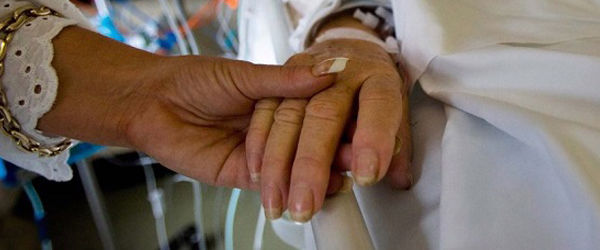Visiting Latin America for the second time in his pontificate, Pope Benedict XVI offered a message of hope for social progress rooted in a revival of Catholic faith.The overriding message of the pope's public statements during his three days in Mexico, March 23-26, was that this troubled country, and the region in general, cannot solve their problems --- which include poverty, inequality, corruption and violence --- by following the prescriptions of secular ideologies.
Instead, the pope said, peace and justice in this world require a divinely inspired change in the human heart.
"When addressing the deeper dimension of personal and community life, human strategies will not suffice to save us," the pope said in his homily during an outdoor Mass at Guanajuato Bicentennial Park March 25. "We must have recourse to the one who alone can give life in its fullness, because he is the essence of life and its author."
Echoing his earlier critiques of liberation theology, a Marxist-influenced movement that found prominent supporters among Latin American Catholics during the 1970s and '80s, Pope Benedict told reporters accompanying him on the plane from Rome that the "church is not a political power, it is not a party ... it is a moral reality, a moral power."
Yet the pope made it clear that he was not encouraging believers to withdraw into a private kind of piety uninvolved with worldly affairs.
"The first job of the church is to educate consciences," he said, "both in individual ethics and public ethics."
Christian hope, the pope told an audience that included Mexican President Felipe Calderon, does not merely console the faithful with the promise of personal immortality.
The theological virtue of hope, he said, inspires Catholics to "transform the present structures and events that are less than satisfactory and seem immovable or insurmountable, while also helping those who do not see meaning or a future in life."
The practical expression of this inspiration, the pope said, is the church's extensive charitable activities, which help "those who suffer from hunger, lack shelter, or are in need in some way in their life."
That point seemed particularly relevant to the second half of Pope Benedict's Latin America visit, to Cuba March 26-28. Catholic charities in Cuba have become notably active in recent years, sometimes in cooperation with agencies of the state. After half a century of communist government and decades of official atheism there, Pope Benedict could hardly find more powerful evidence for the inadequacy of secular solutions than the church's growing role in caring for Cuba's poor.
When the pope bade Mexico a warm "adios" March 26, he concluded a trip marked by outpourings of faith and affection from people in the world's second-most populous Catholic country.
"I leave full of unforgettable experiences, not the least of which are the innumerable courtesies and signs of affection that I've received," Pope Benedict said in his closing remarks before departing for Cuba.
The pope used his departure remarks to exhort Mexicans "to be good citizens, conscious of their responsibility to be concerned for the good of all, both in their personal lives and throughout society."
"In the name of millions of Mexicans, thank you for a visit we will never forget," Mexican President Felipe Calderon said at the departure ceremony.
During his four-day trip, Pope Benedict received the keys to the cities of Leon and Guanajuato, met with Calderon and celebrated Mass for a crowd that the Guanajuato state government estimated at 640,000. He also greeted Mexicans who lost loved ones to violence.
Pope Benedict recognized the outpourings of affection. The evening of March 25, he emerged from Leon's Miraflores College, where he was staying, to salute the assembled masses and be serenaded by mariachis in bone-white cowboy costumes.
"Never have I been received with such enthusiasm. Now I can say that Mexico is going to always stay in my heart," Pope Benedict said in comments translated by his ambassador to Mexico, Archbishop Christophe Pierre, and broadcast on national TV.
Enthusiastic crowds lined streets in the municipalities of Leon, Silao and Guanajuato for all of Pope Benedict's movements. Many chanted, "Benedict, brother, you're now Mexican," reflecting the grand affection shown for the pope, who Mexican and foreign media outlets surmised in stories was less beloved in the country than his predecessor, Blessed John Paul II.
"This could be the only opportunity" to see the pope, said Benito Urrutia, an engineer working in the footwear industry underpinning the Leon economy. "It's an important event, being close to the representative of Christ."
"We came here for the love of the pope and to receive his blessing," added artisan Irma Palomino, who began traveling at 4 a.m. and walked more than three miles uphill to attend the March 25 Mass.
Mexico's national media gave plenty of coverage to politics during the visit and the "miracle" of uniting the country's three main presidential candidates at the Mass, along with Calderon and his predecessor, President Vicente Fox, a Guanajuato native.
The visit came as Mexico's Catholic population continues a gradual decline, measuring 84 percent in the 2010 survey. Auxiliary Bishop Victor Rodriguez Gomez of Texcoco expressed concern with the trend, but said the nearly 5 percent of Mexicans declaring no religious affiliation should be alarming to all Christians.
---CNS
{gallery width=100 height=100}gallery/2012/0330/mexico/{/gallery}

